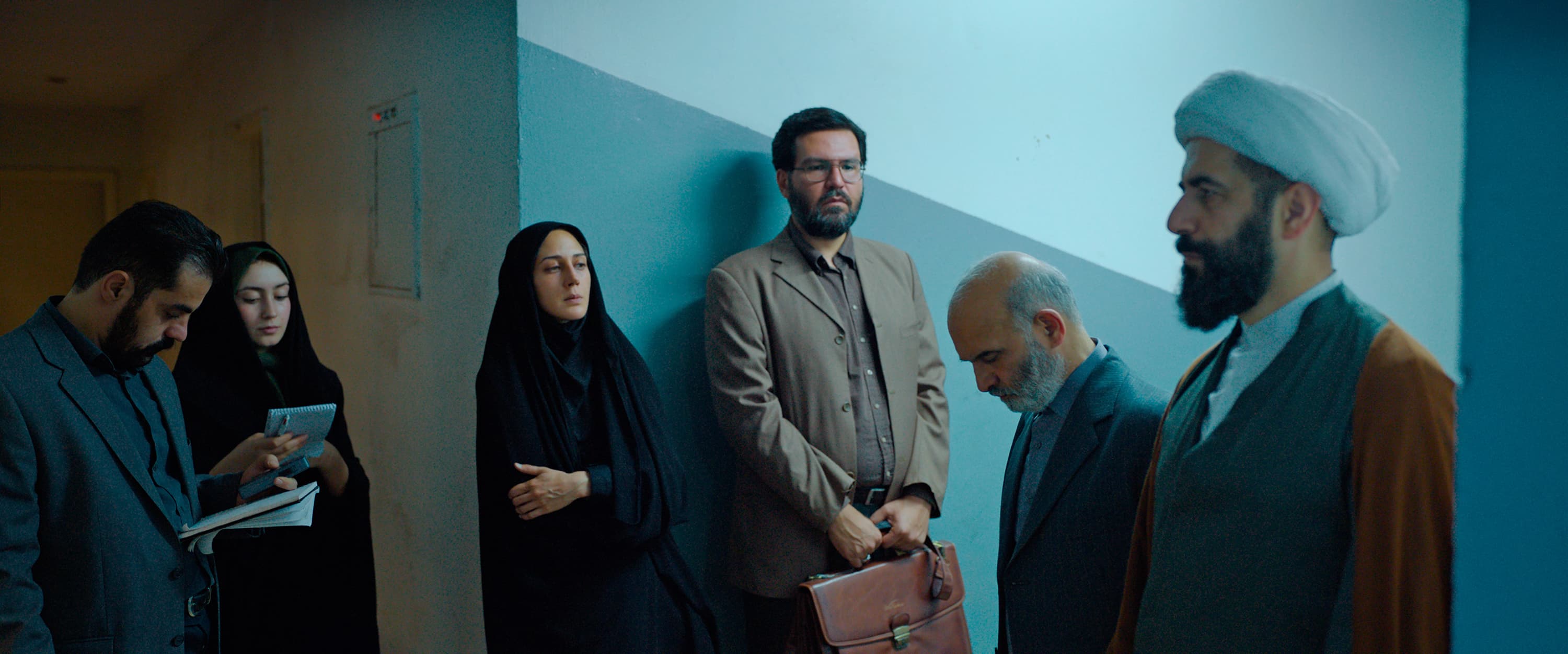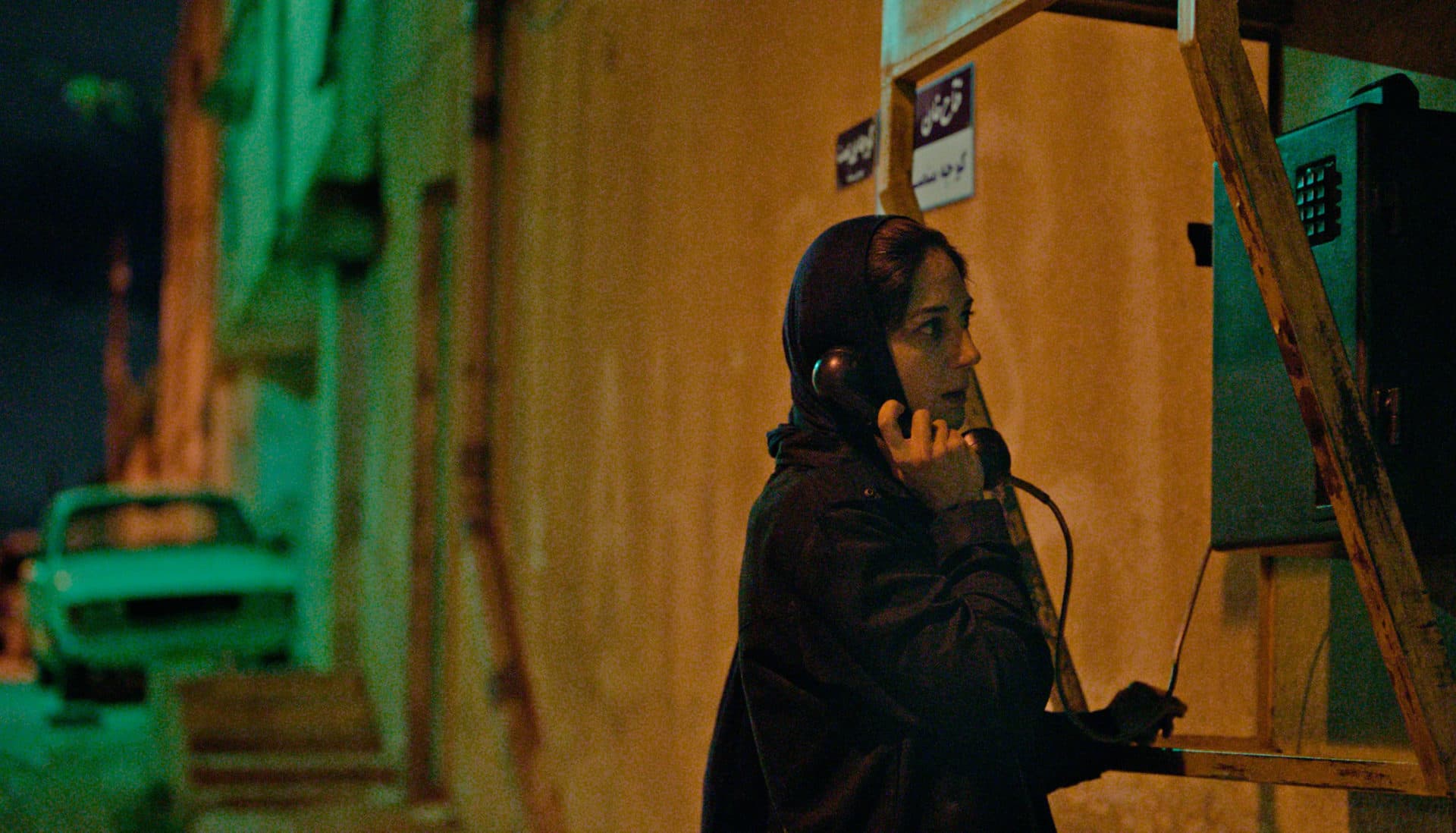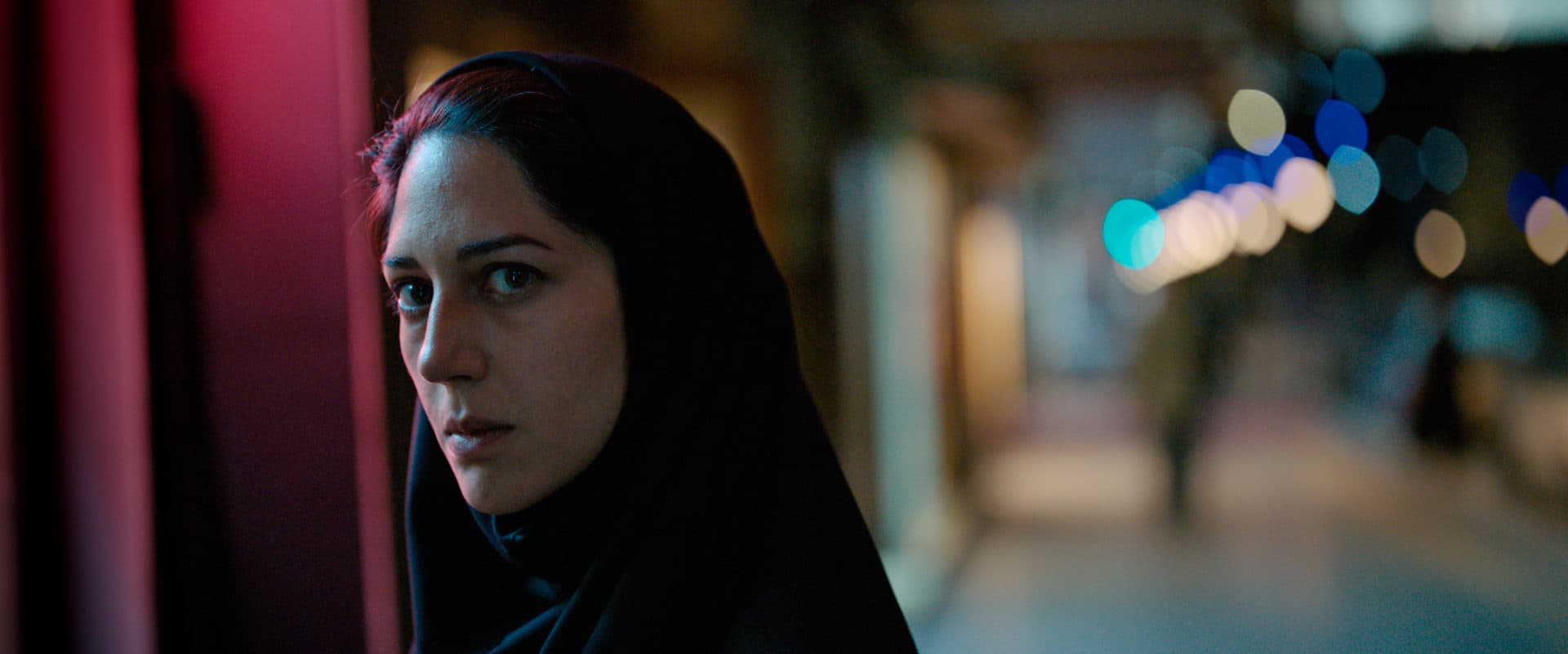Advertisement
Review
Film 'Holy Spider' is hard to watch. Maybe it needs to be

A lurid and purposefully nasty piece of work, writer-director Ali Abbasi’s “Holy Spider” tells the true story of Saeed Hanaei, a construction worker and decorated veteran of the Iran-Iraq war who in the years 2000 and 2001 strangled 16 female sex workers in the Iranian city of Mashhad. Dubbed the Spider Killer by the local press, Hanaei barely tried to hide his crimes, getting into the habit of calling newspaper reporters and telling them where to find the bodies. He saw himself not as a murderer but as a holy crusader, claiming to be cleaning up the city by waging “a one-man jihad against vice.” Though eventually brought to justice and executed in 2002, in a shocking number of circles he was hailed as a hero.
Abbasi’s blunt-force, big-screen translation of the tale is not for the faint of heart, establishing the timeframe by opening with a frail streetwalker being ravaged by a wealthy, roughhousing client while we see the smoldering World Trade Center struck by the second plane on a television in the other room. (Dude, you could have just put a date stamp on the screen.) The whole movie is like that. In your face and unsparing of the horrors faced by these sad, dope sick sex workers. Hanaei liked to choke his victims to death with the headscarves women are required to wear in public, a symbolic gesture that would feel hackneyed and overwrought in a fictional story, but happens to be horrifyingly true.

What’s not true are the travails of a protagonist played by Zar Amir Ebrahimi, who won Best Actress at this year’s Cannes Film Festival for her performance. She stars as Rahimi, an investigative journalist in from Tehran, sniffing around as to why the local police don’t seem particularly interested in solving these murders. (You can probably guess the answer there.) The character has clearly been fashioned after Clarice Starling in “The Silence of the Lambs,” giving the audience not just a moral beacon amid all this ugly murk but also putting us into the shoes of someone who prompts the most offhandedly misogynistic dismissals in an arena dominated by dumb or mostly mediocre men.
We first see Rahimi trying to check into her hotel. The desk clerk notices she’s an unmarried woman and immediately gives her a load of guff about the room no longer being available, only backing down when he sees her press credentials. Then suddenly there’s a vacancy. It’s like that everywhere, with a creepy cop literally sniffing Rahimi’s face at one point. She puts on the chador every morning like it’s a heavy albatross of body armor. For anyone who’s seen a lot of movies from this part of the world, it’s shocking to watch her remove it in her room. Government censors make sure we never see Iranian actresses sleeveless, smoking cigarettes and wearing makeup with red-painted toenails.
Abbasi is an Iranian expat based out of Copenhagen, and “Holy Spider” is Denmark’s official submission for Best International Film in this year’s Oscar race. The film was shot in Jordan, as certainly none of this explicit content — not even the painted toes — would be allowed by authorities in Tehran. Amir Ebrahimi was a popular television actress in Iran during the early 2000s but had to flee the country after a sex tape of her and her boyfriend leaked online. (The penalty for an affair out of wedlock includes prison time plus 97 lashes.) The movie plays into this, giving Rahimi a ruined reputation thanks to a smear campaign by a former editor whose advances she’d refused.

The deliberately disgusting first hour of “Holy Spider” sent more than a few audience members bolting for the exits at its Cannes premiere. Abbasi can be a confrontational filmmaker. (His previous picture, the body horror black comedy “Border” contained such an outré sex scene that when it screened at the Independent Film Festival Boston, I spotted program director Nancy Campbell peeking out from behind the curtains of the Brattle Theatre’s restroom area so she could watch the audience watch it. I would have killed for that view.) “Holy Spider” has been described as “pornographically violent” by its detractors. Maybe it is. But maybe it needs to be?
The second half of the film finds Rahimi looking on in disappointment, but not disbelief, as Hanaei is elevated to folk hero status. His appalling actions are so sanitized and minimized by religious leaders and certain government officials, it’s vital that we already have it burned into our brains how pathetic and sexually twisted was his moral crusade, and how helpless and broken were his victims. I’ll admit that I have a stronger stomach for this kind of material than most, but not every movie needs to be for everybody. “Holy Spider” is awfully hard to watch, but I don’t think there’s any responsible version of this story that isn’t.
"Holy Spider" opens Friday, Dec. 16 at the Coolidge Corner Theatre. On Sunday, Dec. 18, Iranian activist Neda Moridpour and UMass Dartmouth Professor Pamela Karimi will host a Q&A and discussion following the 2 p.m. screening.
